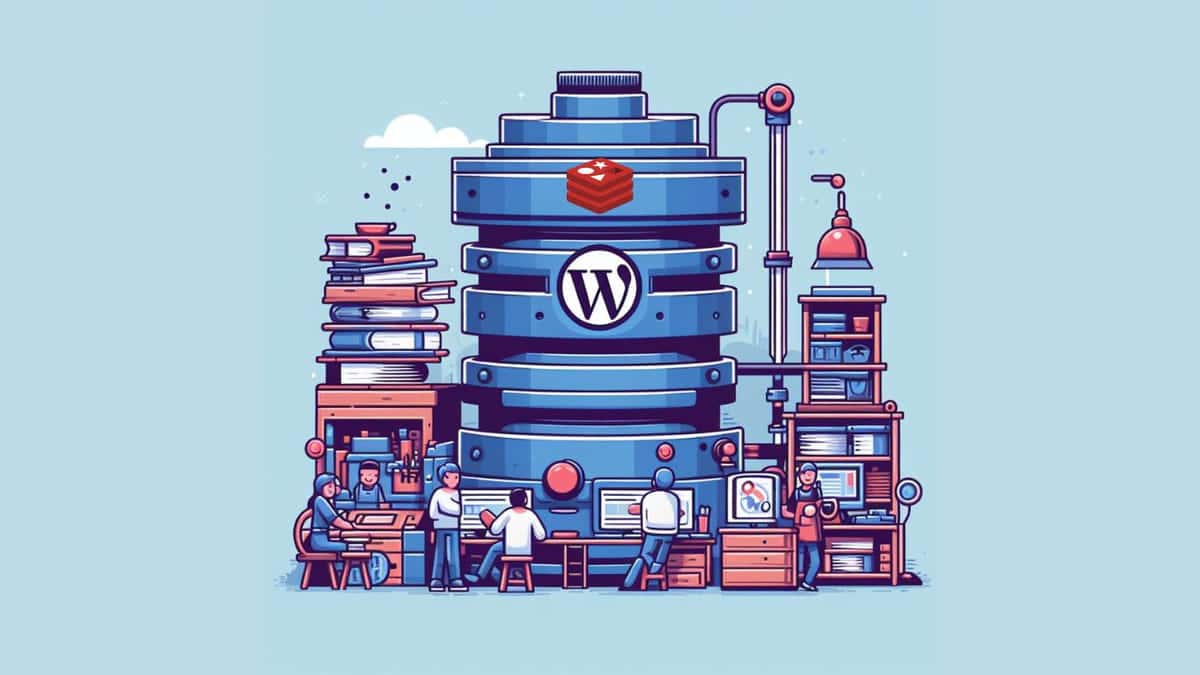Customer service is important to your business because: it retains customers and extracts more value from them. By providing top-notch customer service, businesses recoup customer acquisition costs and cultivate a loyal following that refers to customers, serves as case studies, and provides testimonials and reviews. So it’s time to think about it even before you jump into a business, even the best ideas if are not backed up by a top-notch customer service may fail or not reach their targets.
Difference between customer service and customer support
Customer service provides store users with information necessary for a successful transaction completion whereas customer support focuses on solving technical problems that occur in the product.
Customer service is about helping people, hearing their concerns and solving their issue. The ultimate goal is to provide customers with high-quality assistance that would encourage repeat purchases.
Providing Good customer service and support will effectively assist and empower your customers through the entire purchasing process. From pre-purchase, through their purchase and all the way to their post-purchase experience.
- How can I better assist customers who are interested in purchasing my product or service? Can you quickly provide accurate answers to your customer questions? Are your support reps highly educated about your product offering? Are you able to provide trials or deals for customers who are “sitting on the fence”?
- How can I better assist customers during the purchasing process? Is it easy to submit an order to your business? Are you able to accommodate custom requests? Can you efficiently solve errors with orders? Can you provide the customer with order details such as package tracking?
- How can I better assist customers after the purchase has occurred? Are you able to quickly and easily fix any issues with faulty products or errors in service? How do you make it up to the customer in such cases? Are you educating your customers on how to get the most value out of your product or service? How easy is it for your customer to send in something for repair? Are you rewarding your customers for their loyalty and repeat business?
Why Is Customer Support Important
“I’ve learned that people will forget what you said, people will forget what you did, but people will never forget how you made them feel.” Maya Angelou
Customer support is equally important to customer service as high-quality products aren’t the only factor that contributes to high customer satisfaction, brand awareness and loyalty. It’s the post-purchase phase that eventually becomes the determining factor whether a customer will continue doing business with a company or not.
By the post-purchase phase, I mean how well a company takes care of their clients, whether their service has ended together with a successful product purchase or on the contrary, they’re willing to provide assistance after the transaction as well.
Staying on good terms with one-time buyers can increase customer loyalty and what follows, a steady income influx for many years to come. Research has shown that customers stay loyal to a brand (73%) and come back for product repurchase (93%) if customer service agents are friendly and empathetic.
#1 Be Curious to Get to the Bottom of the Problem
Curiosity leads to discovery. As a customer support specialist, always run a thorough analysis and diagnose the problem so that the first-aid solution doesn’t require further professional treatment.
Nip the bug in the bud by troubleshooting the issue and going through a list of “what went wrong” kind of questions. The more you ask, the bigger angle on the case you’ll receive. Remember that.
#2 Be Attentive and Hear Customer’s Concerns
Listening is the communication skill that helps to understand customer’s intentions and address their needs. If you don’t listen, how can you hear anyone’s concerns? You can’t.
When communicating with customers, you need to devote your full attention – the devil always lies in the details. Failing to memorize or catch small pieces of information will take away precious time that could have been devoted to solving another client’s issues.
#3 Have Subject Matter Expertise to Solve Issues
To even consider working for an IT-related business, you need to make sure that reading instructions, operating software programs and looking for system glitches do excite you as these are the kind of operations that the customer support job is about.
The support team, first and foremost, aims at troubleshooting and solving issues. But, to do so, a CS agent has to gain expertise in relevant technical domain first.
According to Fundera, 20% of small businesses fail in their first year, and 50% fail by their fifth year. (groovehq.com)
For the most part, the probability of selling to a new customer hovers in the range of 5-20 percent, whereas selling to an existing customer resides in the range of 60-70 percent. (entrepreneur.com)
So it’s time to take customer support seriously.

The Most Important Customer Service Skills
But what exactly are “top-notch” customer service skills? This list of the 16th most important customer service skills you need to have to make your business successful will be handy for sure if you plan to succeed in this field. These skills are even great for the everyday dealings with customers that don’t involve a complaint and it’s better to get these right before it happens so you will be able to handle problems that will potentially occurs in advance. We’ll come at them from the perspective of problem-solving, but use them every day to make your customers happy and you won’t regret. Let’s get started!
1) Respect
The idea behind respect is that you treat others the way you would like to be treated. If you had a problem, you wouldn’t want to be dismissed or ignored, would you? Of course not. The same goes for the person who has come to you with an issue to resolve. Regardless of their attitude, good customer service skills dictate that you be respectful at all times. Here are some simple ways that you can show respect:
- Use their name.
- Don’t interrupt. Listen instead and take notes if you need to.
- Look at them while they’re speaking. You have to be present at the moment and not away.
- Wait until they’re finished before offering a response. Take some time to assess your response and then go for it and expose your reply and observations.
2) Patience
Customers with problems are going to want to talk. They’re going to want to explain every last detail to you. Sometimes, they’re going to keep talking even after you got the point. An employee with good customer service skills will wait patiently and let the customer talk until they’re finished. This helps the customer feel like they’re being heard and can go a long way toward making the situation better. One way to cultivate patience is to remember that, most of the time, the customer is not upset with you personally.
3) Self-Control
Some customers are going to keep their voice low, stay calm, and communicate in a rational way. Others, however, are going to let their emotions get the better of them and come at you with yelling and harsh words. Some may even insult you directly. It’s these situations that demand strong self-control. By staying calm, you allow the customer to vent his frustration without creating an antagonistic situation that could get even more heated. Keep in mind that the customer may just want to be heard, and this is the only way he knows to make that happen. Let him have his say and then work to resolve the issue. An effective way to maintain self-control during a confrontation is to take a few deeps breaths and count to ten before responding.
4) Concern
Good customer service skills include being concerned about the well-being of the customer regardless of the problem she is having. Concern for the customer goes back to being concerned for the reputation and success of the business itself. If an employee isn’t concerned with the success of the business, he’s not going to be concerned about the happiness of the customer.
5) Attentiveness
When a customer has a problem, he wants to be given the attention necessary to get the situation resolved. That means more than just taking the time to fix whatever is wrong. Attentiveness means making eye contact, listening to what the customer has to say, following the conversation, and responding appropriately. It does not mean, looking elsewhere, focusing on something else, and only hearing part of what the customer said. When you focus on the customer—when you’re attentive—you’ll often see a simple way that you can resolve the issue for the best.
6) Empathy
Empathy is the ability to sense and understand the emotions of others. It’s essentially putting yourself in the emotional shoes of the customer. Many will argue that empathy is the most important customer service skill out there. True, it is an important piece of the puzzle, but it’s only one skill among many that make good customer service possible. To practice empathy, try to feel what the customer is feeling, then think about how you can make those bad feelings go away. It takes a bit of effort, but everyone can be empathetic if they really try.
7) Flexibility
Flexibility is crucial when dealing with customer problems. The rules may state clearly that you don’t give away free product or service. Sometimes, though, that may be exactly what is necessary to resolve an issue. Occasional bending of the rules to make a customer happy should not be discouraged. That doesn’t mean letting the customer run roughshod all over you. But you, and your employees, need to be flexible enough to make exceptions from time to time.
8) Communication Skills
Good customer service communication skills involve more than just the words you say although those are important too. Good communication skills involve body language, facial expressions, tone of voice, and much more. When conversing with an irate customer, try these simple tips for good communication:
- Keep your body relaxed.
- Show a bit of concern on your face.
- Keep your tone of voice calm and neutral.
- Try to use positive language (words like can, will, help, resolve) when responding.
These communication skills can help defuse even the most difficult situations.
9) Effective Listening
There are two outcomes to every conversation:
- You can correctly interpret what the customer is trying to say so that she will be completely understood.
- You can misinterpret what the customer is trying to say so she will be misunderstood.
The customer service skill that separates those two outcomes is effective listening. And effective listening is about more than just hearing what the customer has to say. Effective listening involves understanding both what is being said and what is left unsaid. Often, it is what is unsaid that is more important than what is said. Not being able to discern between these two things can cause communication to break down and lead to customer frustration and dissatisfaction.
10) Responsibility
Above all else, customers want someone to take responsibility for their problem. Even if it has nothing to do with you, take it upon yourself to get involved. Reassure the person that you will stay with this problem until it has been resolved. That removes the burden from the shoulders of the customer and makes them feel like they’re moving toward a resolution.
11) Efficiency
Solving some customer complaints may involve more than just giving away a free pizza or a ball cap. Sometimes, the process of resolution involves numerous steps. That’s when efficiency becomes an important customer service skill. Don’t neglect the problem. Instead, stick with it and work for a solution as quickly as possible with as few steps as necessary. A quick resolution to a problem, even if it involves multiple steps, can make a customer feel valued and reinforces his perception of your business.
12) Not Easily Offended
This one is pretty self-explanatory. Customers are going to get angry. They’re going to yell and scream. Sometimes at you specifically. The ability not to take offence will go a long way in these emotionally charged situations. Try to stay calm even if you’re being insulted, and don’t let your anger rear its ugly head. Anger on your part will only make the situation worse.
13) Tenacity
Tenacity, also known as determination, is a key component of the good customer service skills we’re talking about here. Tenacity is the drive to reach a successful resolution to the problem despite the work it might require. Tenacity is a motivation to go beyond the status quo in order to help a customer have a positive and enjoyable experience. Cultivate that quality in yourself and your employees for a truly stellar customer service experience.
14) Positive Attitude
You’d be surprised how far maintaining a positive attitude can go toward solving customer problems. Staying positive under pressure, often in the face of antagonism and negative emotions, can have a calming effect on the entire situation. When you stay positive, you can influence the angry customer to calm down and take a better view of things. That makes finding a solution so much easier.
15) Decisiveness
Sometimes, the simplest way to solve a problem is to be decisive: make the decision and then stick to it. Encouraging employees to make decisions, and then backing them up after they do, can bring about a quick resolution to most problems. It can even keep problems from ballooning into something monstrous. If an employee is presented with a complaint and the solution is obvious and simple, give them the freedom to be decisive—to make the decision on their own.
16) Persistence
Persistence is the ability to stick with the customer’s problem until it is resolved. Persistence shows the customer that she is valued and that her problem isn’t being dismissed out of hand. That simple act of being persistent in trying to make the customer happy can go a long way toward solving the problem. The customer will see your concern and soften her attitude accordingly.
In a competitive world, where we are all connected trough pc, mobile phones and AI is kicking in, we should be able to instead also use our heart, our mind and our soul to connect with other and never forget we are all people.
If you want to have a coaching session to assess your company strategy regarding your customer service support make contact with me and arrange a call, I am sure I can help to better improve the communication into your company to give your customers a smoother experience when they will contact you.


